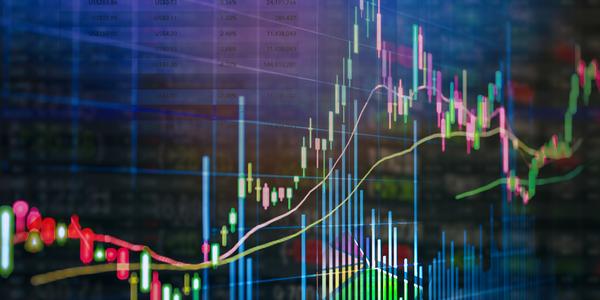Eco World Development Group Bhd (EcoWorld) is accelerating its shift toward recurring income, aiming to lift this contribution to about 20% of total revenue within the next two to three years. The plan comes on the back of a robust FY2024 performance and a strategic rethink of the company’s operating model as it enters its second decade of growth. EcoWorld’s leadership emphasizes that a stronger focus on recurring income will be supported by its low gearing, a broadening product mix, and a more formalized pillar-based structure. The firm closed FY2024 with net earnings of RM303.54 million on revenue of RM2.26 billion, marking a 60.33% rise in net profit from RM189.32 million in FY2023, while revenue growth remained modest at 1.44%. Net gearing stood at a historical low of 0.19 times as of October 31, 2024, highlighting the balance sheet strength that underpins the new strategy. This combination of solid results and financial resilience provides a foundation for the company to pursue higher recurring income as a key driver of value in the medium term.
Strategic shift into recurring income and frameworks
EcoWorld’s leadership describes a deliberate move to redefine how the company conducts its business as it transitions into a more mature stage of growth. The executive team emphasizes that the core objective is to scale the company’s five revenue pillars while actively cultivating recurring income streams that can provide a steadier base of earnings beyond the traditional cycle of land acquisition, development, and home deliveries. This pivot hinges on leveraging the group’s low gearing to support greater investment in income-generating assets and platforms. In discussing last year’s performance, EcoWorld’s executive director, president and CEO Datuk Chang Khim Wah notes that the group achieved record-level sales and earnings in FY2024—over RM4 billion in sales and more than RM300 million in earnings—resources that form the foundation for brighter future years. He highlights that the company’s net gearing near 0.19 times reflects a robust balance sheet that enables strategic choices without the overhang of leverage risk.
Liew Tian Xiong, EcoWorld’s executive director, deputy president and deputy CEO, stresses the continuity of the company’s core principles while underscoring the need for updates to reflect a changing business landscape. He points out that customer service, work culture, and conduct remain central, but the company has moved to a more specialized framework with distinct teams assigned to each pillar. This restructuring aligns with the goal of building each pillar with the same level of ambition and speed as the original townships, while ensuring that execution is tailored to the unique requirements of different product lines and markets. Chang adds that the new approach is designed to enable faster scaling of each pillar, supported by a heightened brand confidence and investor trust in EcoWorld’s strategic direction. The shift toward pillar-specific teams is presented as a natural evolution of a mature real estate platform, enabling more precise targeting of customer segments, pricing strategies, and operational improvements across diverse business lines.
This strategic evolution is framed as a move from a broad, single-framework approach to a more granular, pillar-driven organization. The idea is to keep the customer-centric ethos that has long defined EcoWorld while adopting specialized governance and performance metrics for each pillar. The leadership suggests that this practical realignment will not only improve efficiency but also unlock synergies across pillars by allowing cross-pillar collaboration where appropriate while preserving the autonomy necessary for rapid decision-making in each segment. In short, EcoWorld’s leaders portray the second decade as a period of deliberate structural refinement that preserves the essence of the brand and its customer-first philosophy while enabling a more aggressive pursuit of recurring income opportunities.
Five revenue pillars and how they anchor the business
EcoWorld’s strategy centers on five primary revenue pillars, each representing a distinct business model, product mix, and set of customer propositions. The pillars are Eco Townships for landed residential homes, Eco Rise for high-rise developments, Eco Hubs for commercial, leasing and retail, Eco Business Parks for green industrial parks, and QUANTUM for data centres and other digital-enabled assets. Chang describes Eco Township as the group’s “bread and butter” pillar, reflecting the long-standing strength of the company’s core residential offering. The pillar has benefited from sustained demand for well-planned townships that integrate parks, amenities, and sustainable design, helping to anchor the company’s residential development pipeline.
The Eco Rise pillar focuses on high-rise developments, expanding the company’s footprint in urban cores and ensuring a diversified product mix that appeals to different segments of homebuyers and investors. Eco Hubs is designed to optimize the commercial, leasing, and retail components of EcoWorld’s developments, supporting a mixed-use proposition that enhances occupancy and rental performance across projects. The Eco Business Parks pillar, previously operating in a more ancillary role, has grown into a true revenue pillar driven by its industrial space offerings and the appeal of strategic locations with strong infrastructure. The QUANTUM pillar centers on data centres and digital-related facilities, positioning EcoWorld to benefit from the burgeoning demand for high-technology and data-driven real estate solutions.
The executive leadership notes that the growth in Eco Business Parks and QUANTUM has been particularly notable over recent years. These pillars have evolved from supporting roles to stand-alone revenue engines, driven by market demand, favorable pricing power, and the ability to scale through efficient operations and targeted investments. The company’s five-pillar framework supports a broader product reach, allowing EcoWorld to serve a wider array of clients—from homebuyers to institutional tenants and digital infrastructure users. The strategy also aligns with a broader trend toward diversification within property developers that seek recurring income through long-term leases, asset-light models, and diversified asset classes that can withstand fluctuations in residential demand.
In a key milestone for the QUANTUM pillar, EcoWorld’s leadership highlights early successes in digitalized, high-tech developments. The first project under QUANTUM Edge in Kulai, Johor, involved selling two parcels of industrial land to Microsoft Payments (Malaysia) Sdn Bhd and Princeton Digital Group. The total value of these parcels was RM626 million, demonstrating the group’s ability to attract marquee tenants and investors in high-value digital infrastructure assets. Beyond data centres, EcoWorld is actively pursuing opportunities with high-tech manufacturers and investors to expand the footprint of QUANTUM and related assets in the industrial ecosystem. The emphasis on “real estate serving the digital world” signals a deliberate tilt toward technology-enabled property solutions that complement the group’s traditional development strengths.
The company’s approach to digital and data-centric real estate goes beyond a narrow focus on data centres. It includes exploring synergies between industrial spaces, technology workloads, and the broader digital economy. The leadership argues that this is essential to sustaining long-term growth and creating a diversified earnings mix that can weather property-cycle fluctuations. The ongoing push to refine processes, broaden product ranges, and deepen customer reach across all pillars underpins the ambition to achieve a targeted 20% recurring income contribution within the next two to three years. The plan reflects a thoughtful blend of organic growth, strategic investments, and disciplined portfolio management designed to yield durable earnings streams over time.
Geographic footprint, land deals, and regional momentum
EcoWorld’s geographic footprint remains centered in Malaysia’s key growth corridors, with a stated presence across the Klang Valley, Penang, and Johor. For FY2024, the company reported that Iskandar Malaysia projects accounted for 57% of Group sales, underscoring Johor’s critical role in the company’s revenue mix. The Klang Valley contributed 31%, while Penang accounted for 12%. This geographic distribution highlights a balanced portfolio that leverages Iskandar Malaysia’s scale and attractiveness while maintaining exposure to the capital region’s demand dynamics and Penang’s diversified market. The regional emphasis is complemented by a strategic emphasis on land acquisitions near existing townships, infrastructure, and amenities to optimize value capture and reduce integration risk.
EcoWorld has pursued a deliberate land acquisition strategy designed to extend its townships’ reach while leveraging established infrastructure and commercial ecosystems. The company has acquired significant tranches of land near its existing townships, including 847.3 acres of freehold land in Semenyih, Selangor ( destined for EcoForest 2). In addition, 240 acres in Iskandar Puteri in Johor are earmarked for Eco Botanic 3, and nine acres in Kuala Langat, Selangor, adjacent to Eco Sanctuary, are slated for a high-rise project. These acquisitions reflect a clear strategy of situating new developments in proximity to existing ecosystems, allowing for smoother service provision, enhanced amenities, and more efficient infrastructure integration. The company’s land strategy also includes collaborations and shared-development efforts with other major players to maximize scale and impact.
A major strategic development announced in December of the previous year involves a memorandum of understanding with SD Guthrie Bhd and Negeri Sembilan’s state investment arm NS Corporation to jointly develop a 1,166-acre industrial park in Bukit Pelanduk, Negeri Sembilan. The project has an estimated gross development value (GDV) of RM2.95 billion and is planned for completion over eight years. This collaboration signals EcoWorld’s intention to expand its industrial park footprint in synergy with national development priorities and the growing demand for manufacturing and logistics space. The company has also stressed its preference for acquiring land near existing townships, where established infrastructure and amenities create advantages in terms of accessibility, tenant demand, and the potential for value appreciation.
EcoWorld’s regional growth narrative is reinforced by its performance data for FY2024: Iskandar Malaysia contributed RM2.33 billion in sales, while Klang Valley accounted for RM1.27 billion and Penang contributed RM470 million. The company’s Johor exposure remains particularly strong, given its position as one of the region’s top landowners and a gateway to Singapore and other regional markets. The leadership acknowledges that the rapid transit system (RTS) and the Johor-Singapore Special Economic Zone (JS-SEZ) are game changers that can unlock significant value for EcoWorld’s projects in Johor and neighboring markets. They emphasize confidence in continued demand from Singapore, Indonesia, and China, driven by high interest and a favorable investment climate in the region.
EcoWorld International (EWINT), the group’s overseas affiliate, continues to expand its footprint with 18 ongoing and upcoming projects in the United Kingdom and Australia. Paramount’s 21.54% stake stakeholding in EWINT, acquired in May 2024 as a strategic investor, underscores the international appetite for EcoWorld’s development platform and project pipeline. The overseas arm complements the domestic growth story, offering diversification and potential for scale through cross-border opportunities and shared expertise. The company’s international exposure provides additional channels for recurring income generation through rental yield, asset management, and long-term development partnerships, helping to diversify risk and strengthen earnings resilience amid domestic market cycles.
In addition to core real estate and industrial assets, EcoWorld is pursuing innovative ventures that promise to contribute to recurring income streams. The joint venture with Bitgrim Immersify Group from South Korea, which leads to the launch of immersify KL—the first purpose-built, permanent multi-dimensional media art gallery and virtual museum—will be unveiled on February 27. Located adjacent to Menara EcoWorld, immersify KL marks EcoWorld’s foray into experiential and cultural real estate assets designed to attract visitors, corporate clients, and creative industries. EcoWorld invested RM15 million for a 40% stake in immersify KL, signaling a strategic willingness to diversify its income sources beyond traditional development and leasing.
Operational excellence, efficiency, and long-term outlook
EcoWorld’s leadership highlights a broader set of operational changes designed to support recurring income and sustainable growth. The company’s emphasis on digitalization and process improvement is intended to drive efficiency and yield higher margins across pillars. The five-pillar framework has been complemented by dedicated teams responsible for each pillar, enabling more focused governance, accountability, and performance measurement. These improvements are expected to yield better customer reach, pricing leverage, and value creation across the portfolio. The company attributes FY2024’s profit uplift to the maturity of its projects, with accelerated value creation across developments enabling higher margins and more robust pricing power. The improved mix of products and broader distribution channels have contributed to a stronger earnings platform despite relatively flat revenue growth.
From a strategic supply perspective, EcoWorld’s land acquisitions and project selections underscore a disciplined approach aimed at sustaining long-term growth. Acquisitions near established townships and in proximity to infrastructure help the company capitalize on existing demand and reduce integration risk. The emphasis on industrial and high-tech assets—through both Eco Business Parks and QUANTUM—reflects a confidence in the resilience of demand for well-located, modern facilities with the capacity to attract multinational occupiers. The company’s strategy to partner with leading industrial players and technology firms also signals an intent to embed recurring income streams within its asset mix, leveraging long-term leases and high-quality tenants to stabilize cash flows.
EcoWorld’s outlook remains anchored in a mix of domestic expansion and selective international exposure. The Iskandar Malaysia market continues to be a major growth engine, with strong contributions to top-line sales, while the group’s presence in Kemajuan, Klang Valley, and Penang ensures diversification against regional risks. The potential impact of infrastructure investments, such as RTS and JS-SEZ, is viewed positively by management, which expects these developments to translate into higher demand and more favorable market conditions for its flagship townships, high-rise projects, and industrial assets in coming years.
The next decade: Recurring income as a core pillar of growth
EcoWorld’s leadership is clear that recurring income is not a peripheral line item but a strategic pillar that will anchor the company’s growth trajectory in the medium term. The management views recurring income as a natural evolution for a mature property developer, given the combination of a robust pipeline, strategic land bank, and the ability to manage assets and operations efficiently. The company sees the industrial space, with its persistent demand for modern, efficient facilities, as a particularly fertile ground for recurring income assets. The sales performance of the industrial segment in recent years—evidenced by the contribution of the Eco Business Parks and QUANTUM pillars—illustrates the potential for sustained revenue streams that can complement and stabilize earnings when residential markets experience cycles of volatility.
Looking ahead, EcoWorld aims to collect recurring income from a diversified pool of assets, including office towers, industrial parks, data centres, and mixed-use developments tied to technology and innovation. The company’s strategic objective to realize roughly 20% recurring income within two to three years reflects a deliberate plan to balance capital expenditure, asset quality, and lease-market dynamics. By building a robust pipeline of income-producing assets alongside its traditional development activities, EcoWorld seeks to create a resilient earnings base capable of supporting long-term returns to shareholders. The management emphasizes that this is not a short-term pivot but a long-range plan designed to stabilize cash flows, fund future growth, and sustain the brand’s growth trajectory through multiple market cycles.
EcoWorld’s geographic and asset diversification supports long-range strategic goals. The mix of residential, commercial, industrial, and digital assets provides a multi-faceted portfolio that can be managed to optimize occupancy, rental yields, and asset values. The ongoing expansion in Johor, the Klang Valley, and Penang, together with overseas exposure through EWINT, offers a broad canvas for recurring income opportunities. The company’s observed market dynamics, including rising rents and improving occupancy in known assets like Menara EcoWorld, reinforce the belief that the recurring income strategy is both viable and scalable. As the company continues to refine its operational frameworks and invest in high-quality assets, it is positioned to translate this strategy into meaningful, durable earnings over time.
Conclusion
EcoWorld’s renewed emphasis on recurring income marks a deliberate and strategic pivot as it enters its second decade of operations. The company’s FY2024 performance, highlighted by a net profit of RM303.54 million on revenue of RM2.26 billion and a historically low net gearing of 0.19 times, provides a solid foundation for a more balanced and durable earnings profile. The five-pillar framework—Eco Townships, Eco Rise, Eco Hubs, Eco Business Parks, and QUANTUM—serves as the backbone for expanding recurring income, with Eco Business Parks and QUANTUM already emerging as true revenue pillars. The acquisition strategy and land-bank expansion near established townships, along with key partnerships and joint ventures, demonstrate EcoWorld’s commitment to sustainable growth and long-term value creation.
The company’s international footprint via EcoWorld International, complemented by strategic investments like immersify KL and a stake by Paramount, broadens the potential for recurring income beyond domestic markets. The focus on digital and high-tech real estate assets is intended to align EcoWorld with the broader digital economy, ensuring relevance and resilience in a fast-evolving property landscape. As EcoWorld continues to refine its organizational structure, strengthen its asset base, and pursue disciplined capital deployment, the path toward 20% recurring income within two to three years appears achievable. The combination of a strong brand, a diversified pillar portfolio, a robust balance sheet, and a proactive approach to asset management positions EcoWorld to build a more stable, scalable, and sustainable earnings engine for the next decade and beyond.


